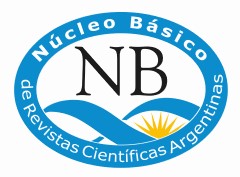Ethical supervision
Ethical responsibility
In studies performed on human subjects, it should be indicated whether the procedures followed conformed to ethical standards and have the approval of the responsible human experimentation committee (institutional or regional), and are in accordance with the World Medical Association and the WMA Declaration of Helsinki. The use of names, initials, medical record numbers, or other data allowing patient identification is not acceptable in any section of the manuscript.
When describing animal studies/experiments, it should be indicated whether the guidelines of an institution (Institutional Committee for the Care and Use of Animals in Experimentation, CICUAE, CICUAL), international research council, or national regulatory law have been followed.
Informed Consent
It should be mentioned in materials and methods that the procedures used in patients and controls have been performed after obtaining informed consent. If photographs or patient data are reproduced, the authors are responsible for obtaining written consent, authorizing their publication, reproduction and dissemination in print and online.
Likewise, Revista Argentina de Medicina will comply in its publication process with the International Ethical Guidelines for Health-Related Research Involving Human Subjects, developed by the Council for International Organizations of Medical Sciences (CIOMS) in collaboration with the World Health Organization (WHO).
As such, its 25 ethical guidelines will be respected and will not be violated:
1. Social and scientific value, and respect for rights
2. Research in resource-poor settings
3. Equitable distribution of benefits and burdens in the selection of individuals and groups of research participants.
4. Individual benefits and risks of research
5. Choice of control mechanism in clinical trials
6. Attention to the health needs of the participants
7. Community involvement
8. Collaborative partnerships and capacity building for research and research review 9.
9. Individuals who have the capacity to give informed consent
10. Modifications and waivers of informed consent
11. Collection, storage, and use of biological materials and related data.
12. Collection, storage, and use of data in health-related research
13. Reimbursement and compensation for research participants.
14. Treatment and Compensation for Research-Related Damages
15. Research involving vulnerable individuals and groups
16. Research involving adults who do not have capacity to give informed consent
17. Research involving children and adolescents
18. Women as research participants
19. Women during pregnancy and breastfeeding as research participants.
20. Research in disaster situations and disease outbreaks.
21. Cluster randomized trials.
22. Use of online data and digital tools in health-related research
23. Requirements for establishing research ethics committees and for protocol review
24. Public Accountability for Health-Related Research
25. Conflicts of interest
For more details on the above guidelines: https://cioms.ch/wp-content/uploads/2017/12/CIOMS-EthicalGuideline_SP_INTERIOR-FINAL.pdf







 This work is licensed under a
This work is licensed under a 